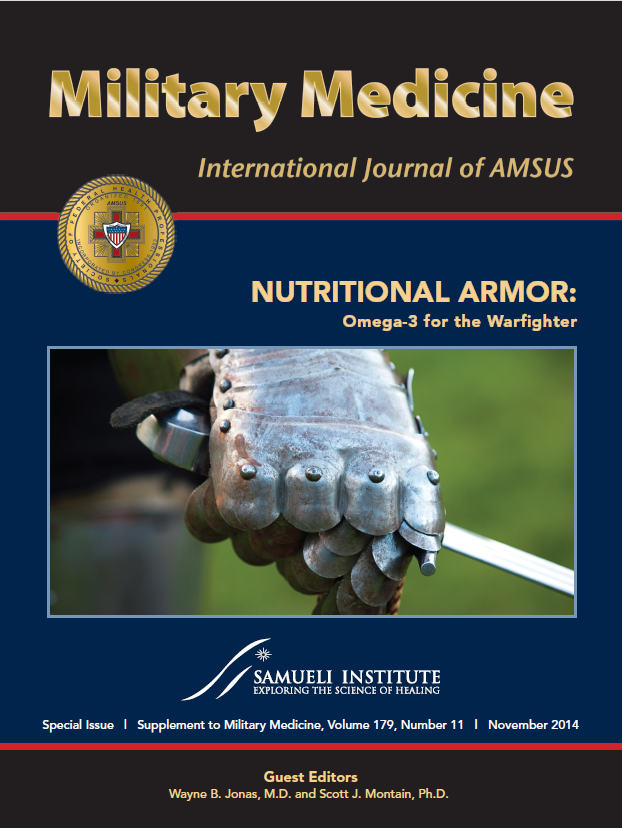

By: Kiecolt-Glaser JK, Glaser R, Christian LM
Publication Name: Military Medicine
Year: 2014
Stress-related immune alterations can be consequential for health; they can enhance susceptibility to infectious agents and influence the severity of infectious disease, diminish the strength of immune responses to vaccines, reactivate latent viruses, and slow wound healing. Furthermore, stressful events and negative emotions promote systemic proinflammatory cytokine production while reducing beneficial local production of proinflammatory cytokines at the wound site that are important for wound healing. Dietary omega-3 and omega-6 polyunsaturated fatty acids (PUFAs) also influence systemic inflammation; high proportions of omega-6 to omega-3 boost inflammation, while omega-3 has anti-inflammatory properties. Additionally, the limited evidence thus far suggests that omega-3 PUFA may enhance local inflammatory responses at wound sites. Moreover, an individual's dietary proportion of omega-3 to omega-6 may influence the magnitude of inflammatory responses to stressful events. Thus, wound healing and surgery provide exemplars of how stress and depression can interact with the diet to influence important clinical outcomes.